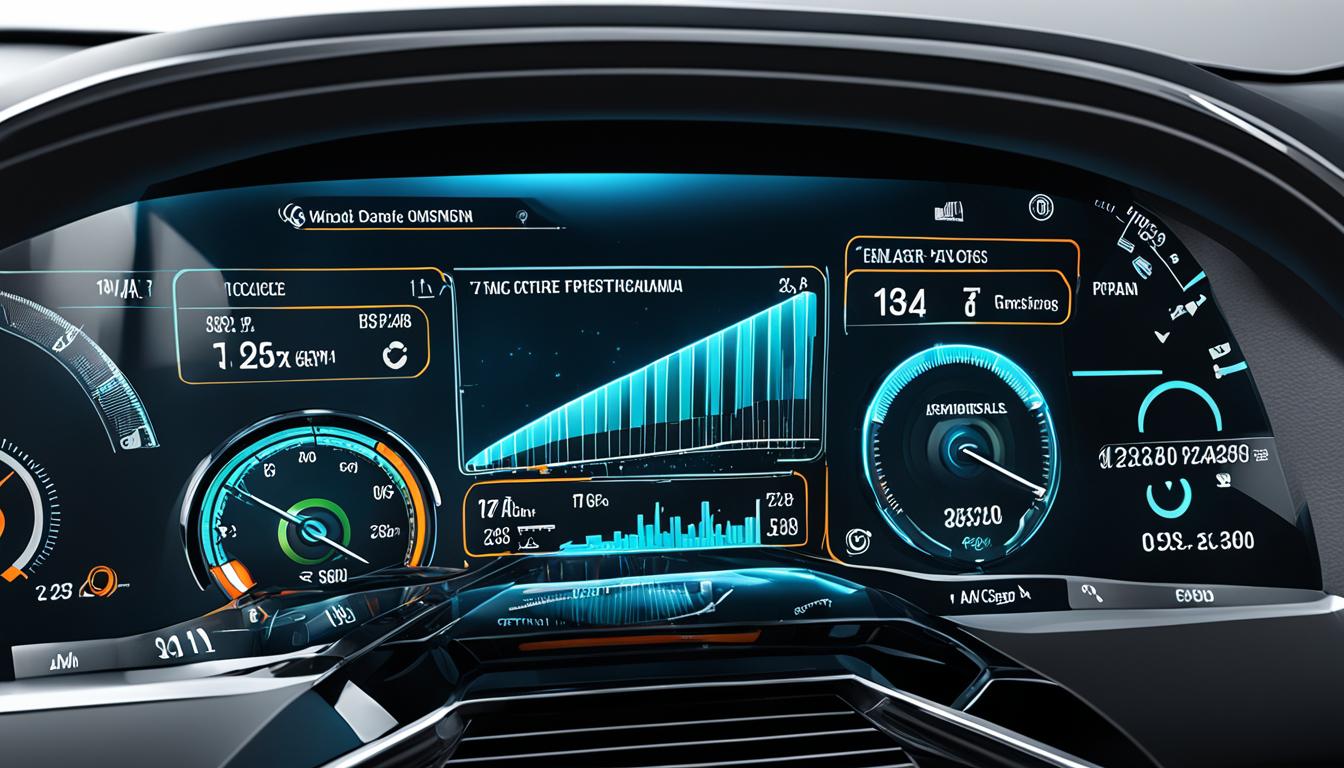
The Road Ahead: How Vehicle Telematics are Transforming Driving
Technology continues to reshape various aspects of our lives, and the driving experience is no exception. With the integration of vehicle telematics, driving is becoming safer, more efficient, and more connected than ever before. Vehicle telematics harnesses advanced technology to gather and analyze data from vehicles, revolutionizing the way we interact with our cars and shaping the future of transportation.
Key Takeaways:
- Vehicle telematics integrates advanced technology into vehicles to improve safety and efficiency.
- Telematics benefits individual drivers by enhancing safety, providing useful information, and optimizing fuel efficiency.
- Fleet managers can benefit from telematics by improving operational efficiency, monitoring driver performance, and enhancing maintenance.
- Vehicle telematics combines technologies like GPS, wireless communication, and onboard sensors to collect and transmit data.
- The future of vehicle telematics holds advancements like autonomous driving capabilities and connected vehicle technologies.
The Benefits of Vehicle Telematics
Vehicle telematics offers numerous benefits for both individual drivers and fleet managers. By leveraging advanced technology and data analysis, telematics enhances safety, improves efficiency, and provides valuable insights that can transform the driving experience.
Enhanced Safety
Telematics enables real-time monitoring of driving behavior, allowing drivers to receive proactive alerts for potential hazards. This helps reduce the risk of accidents and promotes safer driving habits. Additionally, telematics can provide valuable assistance in emergency situations, automatically alerting emergency services and providing accurate location information.
Driving Efficiency
Telematics offers drivers valuable information and features that optimize their driving experience. Navigation assistance ensures drivers take the most efficient routes, saving time and fuel. Maintenance reminders help drivers stay on top of vehicle maintenance, reducing the likelihood of breakdowns and costly repairs. Moreover, telematics can provide insights into fuel consumption patterns, allowing drivers to make adjustments for improved fuel efficiency.
Fleet Management Benefits
Fleet managers can leverage telematics to optimize fleet operations and enhance productivity. By monitoring driver performance and behavior, fleet managers can identify areas for improvement and provide targeted training. Telematics also enables efficient route planning, ensuring drivers take optimal routes to save time, fuel, and reduce vehicle wear and tear. Real-time data on fuel consumption and vehicle diagnostics can help fleet managers identify maintenance needs and schedule repairs in a timely manner, minimizing downtime and costs.
Overall, the benefits of vehicle telematics extend beyond individual drivers, providing fleet managers with data-driven insights that can revolutionize their operations. The integration of telematics into the driving experience holds great potential for improving safety, efficiency, and maintenance practices.

How Vehicle Telematics Works
Vehicle telematics is a complex system that combines several technologies to gather and analyze data from vehicles. By understanding how vehicle telematics works, we can appreciate the transformative power it has on driving experiences and fleet management.
At its core, vehicle telematics utilizes the following technologies:
- GPS (Global Positioning System): This technology calculates the precise location of a vehicle using satellite signals. It enables real-time tracking and monitoring, providing accurate information on vehicle movements.
- Wireless communication: The data collected by telematics systems is transmitted wirelessly to a central server or cloud-based platform. This allows for seamless integration and accessibility of information.
- Onboard sensors: Telematics devices are equipped with sensors that capture various data points. These sensors can detect and record information such as speed, acceleration, braking, fuel consumption, and engine diagnostics.
The data collected by vehicle telematics systems is comprehensive and provides valuable insights into vehicle performance and driver behavior. It includes:
- Location information: Identifies the exact coordinates of the vehicle, enabling tracking and mapping functionalities.
- Speed, acceleration, and braking data: Measures key driving parameters to support assessments of driver behavior and safety.
- Fuel consumption: Monitors fuel usage, allowing for analysis and optimization of fuel efficiency.
- Engine diagnostics: Captures information about the vehicle’s engine performance and any potential issues that may require attention or maintenance.
Once the data is collected, it can be processed and analyzed in real-time or stored for later analysis. Fleet managers can access this information through web-based platforms or mobile applications, empowering them to make informed decisions and take proactive actions.

Vehicle telematics systems provide a wealth of benefits to both individual drivers and fleet managers. By harnessing the power of technology and data, vehicle telematics enhances safety, efficiency, and overall performance on the roads.
The Future of Vehicle Telematics
The future of vehicle telematics is filled with promise and untapped potential. As technology continues to advance at a rapid pace, we can expect to see further integration of telematics into vehicles, revolutionizing the way we drive and interact with our vehicles.
One of the key developments we can anticipate is the widespread adoption of autonomous driving capabilities. Self-driving technology is already making significant strides, and as it continues to improve, we will witness a shift towards fully autonomous vehicles. These vehicles will rely heavily on telematics data to navigate safely and efficiently, opening up new possibilities for mobility and transforming the way we think about transportation.
Additionally, advanced driver assistance systems (ADAS) will play a major role in shaping the future of vehicle telematics. These systems, powered by telematics technology, will enhance safety by providing real-time alerts and assistance to drivers. From collision avoidance to lane departure warnings, ADAS will help prevent accidents and make our roads safer for everyone.
Furthermore, the rise of connected vehicle technologies will pave the way for a more integrated and seamless driving experience. With vehicles communicating with each other and with infrastructure systems, we can expect improvements in traffic management, reduced congestion, and enhanced fuel efficiency. Telematics data will enable the development of smart cities and intelligent transportation systems, revolutionizing the way we move and transforming the urban landscape.
FAQ
What is vehicle telematics?
Vehicle telematics is the integration of advanced technology into vehicles to gather and analyze data, improving safety, efficiency, and providing useful insights for drivers and fleet managers.
What are the benefits of vehicle telematics?
Vehicle telematics offers benefits such as enhanced safety through real-time monitoring of driving behavior, navigation assistance, maintenance reminders, and fuel efficiency optimization for drivers. Fleet managers can benefit from improved operational efficiency, optimized routes, driver performance monitoring, reduced fuel consumption, and enhanced vehicle maintenance.
How does vehicle telematics work?
Vehicle telematics combines technologies like GPS, wireless communication, and onboard sensors to collect and transmit data on location, speed, acceleration, braking, fuel consumption, engine diagnostics, and more. This data is processed and analyzed in real-time or stored for later analysis, allowing fleet managers to access it through web-based platforms or mobile applications for informed decision-making.
What does the future hold for vehicle telematics?
The future of vehicle telematics is promising, with advancements in technology and increasing adoption rates. We can expect further integration into vehicles, with features like autonomous driving capabilities, advanced driver assistance systems, and connected vehicle technologies becoming more prevalent. Telematics data will play a crucial role in enabling the development of smart cities, intelligent transportation systems, and efficient logistics networks.
